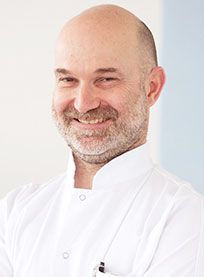Avelumab Does Not Improve OS Over Docetaxel in NSCLC, Phase III Trial Shows
The primary endpoint of improving overall survival was not met in the phase III JAVELIN Lung 200 Trial of avelumab in patients with non–small cell lung cancer, according to Merck KGaA and Pfizer, the co-developers of avelumab.
Fabrice Barlesi, MD

Fabrice Barlesi, MD
The primary endpoint of improving overall survival (OS) was not met in the phase III JAVELIN Lung 200 Trial of avelumab (Bavencio) in patients with nonsmall cell lung cancer (NSCLC), according to Merck KGaA and Pfizer, the co-developers of avelumab.
According to results of the study, the PD-L1 inhibitor did not improve OS for patients with PD-L1-positive (≥1%) unresectable, recurrent or metastatic NSCLC compared with docetaxel in patients who had progressed on platinum-containing doublet chemotherapy (hazard ratio [HR], 0.90; 96% CI, 0.72-1.12; one-sidedP= .1627).
“Avelumab performed in line with expectations in the trial from both an efficacy and safety perspective,” primary investigator Fabrice Barlesi, MD, PhD, head of the Multidisciplinary Oncology and Therapeutic Innovations Department at Aix-Marseille University and the Assistance Publique Hôpitaux de Marseille, France, said in a statement.
“With immune checkpoint inhibitors approved for patients with previously treated, advanced nonsmall cell lung cancer, higher percentages of immunotherapy-naïve patients are receiving subsequent checkpoint inhibitors in their progressive treatments. This was observed in the JAVELIN Lung 200 control arm and may have confounded the primary outcome of the study,” added Barlesi.
The proportion of patients in the chemotherapy arm crossing over to immune checkpoint inhibitors outside the study was higher than previously reported in post-platinum immunotherapy clinical trials, which may have confounded the outcome, Merck and Pfizer noted in a press release. More than a quarter of patients (26.4%) in the docetaxel arm received subsequent checkpoint inhibitor therapy versus 5.7% in the avelumab arm.
Investigators noted improvements in OS versus the control arm in the 40% of patients with moderate-to-high (≥50%) PD-L1 expression (HR, 0.67; 95% CI, 0.51-0.89; two-sidedP= .0052) and the 30% of the cohort with high (≥80%) PD-L1 expression (HR, 0.59; 95% CI, 0.42-0.83; two-sidedP= .0022).
Merck and Pfizer plan to release more detailed results from JAVELIN Lung 200 at a future medical meeting and discuss the data with regulatory agencies.
Early research had shown promise for avelumab in lung cancer. Results from the JAVELIN Solid Tumor trial presented in December 2016 at the IASLC 17th World Conference on Lung Cancer showed that after a median follow-up of 13 weeks, the objective response rate with the antiPD-L1 immunotherapy agent was 22.4% and the median progression-free survival was 17.6 weeks among 156 patients with NSCLC.2The patients were unselected for PD-L1 expression levels, were notEGFR- orALK-positive, and had not received previous systemic treatment for metastatic or recurrent disease.
Avelumab currently has FDA approved indications for the treatment of patients with Merkel cell carcinoma and urothelial carcinoma.
References:
- Merck KGaA, Darmstadt, Germany, and Pfizer Provide Update on Phase III JAVELIN Lung 200 Trial of Avelumab Monotherapy in Previously Treated Patients with Advanced Non-Small Cell Lung Cancer. Merck. Published February 15, 2018. Accessed February 15, 2018. http://prn.to/2Ex2EdX.
- Jerusalem G, Chen FL, Spigel D, et al. JAVELIN Solid Tumor: Safety and Clinical Activity of Avelumab (Anti-PD-L1) as First-Line Treatment in Patients with Advanced NSCLC. Presented at: 17th World Lung Cancer Conference, the Annual Meeting of the International Association for the Study of Lung Cancer (IASLC); December 4-7, 2016; Vienna, Austria.